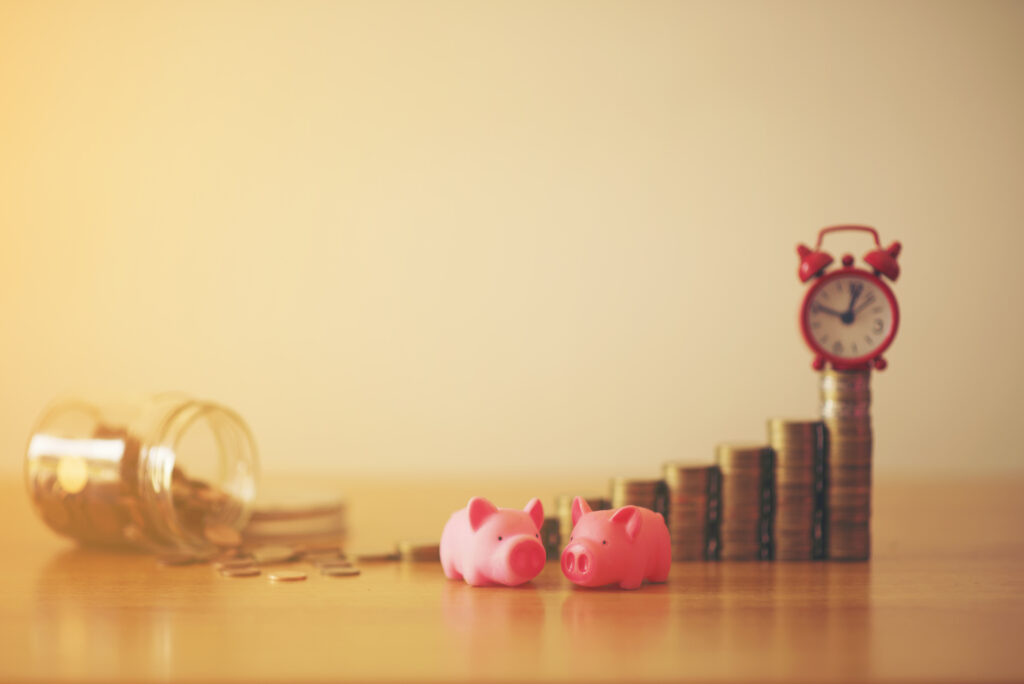Money is important. It helps us live, work, and enjoy life. But managing money can feel hard, especially if you’ve never learned how to do it. The good news is that you don’t need to be rich or smart with numbers to handle money well. Small habits—things you can start today—can make a big difference over time. Let’s talk about simple financial habits anyone can follow. These habits are easy to understand and easy to do. They’ll help you save money, reduce stress, and build a better future.
Track What You Spend
The first step to managing money is knowing where it goes. Many people spend without thinking. They buy coffee, snacks, or things they don’t really need. Before they know it, their money is gone.
Imagine you have a jar of water. If you pour water out without looking, you won’t know when the jar is empty. The same happens with money. To avoid this, write down everything you spend. For example:
- Write down how much you spend on groceries.
- Note how much you pay for gas or bus tickets.
- Keep track of small things like snacks or drinks.
At the end of the week, look at your list. You might be surprised by how much you spend on little things. Once you know where your money goes, you can make better choices.
Save a Little Every Day
Saving money doesn’t have to be hard. You don’t need to save hundreds of dollars at once. Start small. Even saving $1 or $2 a day makes a difference over time.
Think of saving like filling a piggy bank. Every coin you add makes the bank heavier. Over months or years, those coins add up to a lot of money.
Here’s how to start:
- Put spare change in a jar at home.
- Use a savings app that rounds up your purchases and saves the extra cents.
- Set aside a small part of your paycheck each month.
Saving gives you peace of mind. It helps you handle emergencies, like car repairs or medical bills. Plus, it lets you plan for fun things, like vacations or gifts.
Make a Simple Budget
A budget is a plan for your money. It tells you how much to spend and save each month. Think of it as a map that helps you reach your goals.
Here’s how to make a budget:
- Write down how much money you earn each month.
- List all your fixed expenses, like rent, utilities, and groceries.
- Subtract these expenses from your income.
- Use the leftover money for savings and fun things.
For example, if you earn $1,000 a month and your expenses are $800, you’ll have $200 left. You could save $100 and use the other $100 for hobbies or treats.
A budget doesn’t have to be perfect. Start simple and adjust as you go. Over time, you’ll get better at sticking to it.
Pay Yourself First
Paying yourself first means saving money before you spend it. This habit ensures you always have money for the future.
Here’s how it works:
- When you get paid, set aside a small amount for savings.
- Treat savings like a bill you must pay. Don’t skip it.
For example, if you earn $500, save $25 right away. Then use the rest for your expenses. By paying yourself first, you won’t run out of money to save.
This habit builds wealth over time. Imagine saving $25 every month. After a year, you’ll have $300. After 10 years, you’ll have $3,000. Add interest from a savings account, and your money grows even faster.
Avoid Buying Things You Don’t Need
It’s easy to spend money on things you want but don’t need. A new phone, fancy clothes, or expensive meals might feel good at the moment. But they can drain your wallet quickly.
Before buying something, ask yourself:
- Do I really need this?
- Will I still want it next month?
- Can I wait before buying it?
For example, if you see a pair of shoes you like, wait a week before buying them. If you still want them after a week, they might be worth it. Often, you’ll forget about them and save money.
By avoiding unnecessary spending, you’ll have more money for important things, like savings or debt payments.
Build an Emergency Fund
An emergency fund is money set aside for unexpected events. These could include losing your job, getting sick, or needing car repairs. Without an emergency fund, you might have to borrow money or dip into your savings.
To start an emergency fund:
- Set a goal, like $500 or $1,000.
- Save a small amount each month, even if it’s just $10 or $20.
- Keep the money in a separate account so you’re not tempted to spend it.
Having an emergency fund gives you confidence. You’ll know you’re prepared for whatever comes your way. It also prevents you from going into debt when life throws a curveball.
Use Cash Instead of Cards
Using cash instead of credit or debit cards can help you spend less. When you see money leaving your hands, it feels more real. This makes you think twice before spending.
Here’s how to try this:
- Take out a set amount of cash each week for spending.
- Use it for groceries, gas, and other expenses.
- Leave your cards at home to avoid overspending.
For example, if you take $50 for groceries, you’ll stop shopping once you run out of cash. This keeps you from buying things you don’t need.
Learn to Say No
Sometimes, saying no is the best thing you can do for your finances. Friends or family might invite you to dinner, shopping, or trips. While these activities can be fun, they can also drain your wallet.
It’s okay to say no if you can’t afford something. For example:
- If your friends want to eat at an expensive restaurant, suggest a cheaper option.
- If someone asks you to lend money, explain that you’re focusing on your own financial goals.
Saying no doesn’t mean you’re being selfish. It means you’re taking care of yourself and your future. Remember, your financial health is important.
Invest in Yourself
Investing in yourself means learning new skills or improving the ones you have. This can help you earn more money or advance in your career. For example:
- Take an online course to learn graphic design or coding.
- Attend workshops or seminars in your field.
- Read books about personal finance or career growth.
These investments cost money upfront but can lead to higher earnings later. For instance, learning a new skill might help you get a promotion or start a side hustle.
Celebrate Small Wins
Changing your financial habits takes time. Don’t expect overnight success. Instead, celebrate small wins along the way. This keeps you motivated and excited about your progress.
For example:
- Treat yourself to a movie when you hit a savings goal.
- Share your achievements with friends or family.
- Reflect on how far you’ve come.
Celebrating wins reminds you why you started. It also makes the journey more enjoyable.
Final Thoughts
Managing money isn’t about being perfect. It’s about making small changes that add up over time. By tracking your spending, saving a little every day, and avoiding unnecessary purchases, you can take control of your finances.
Remember, the earlier you start, the better. Even small habits, like saving $1 a day or writing down your expenses, can lead to big results. With patience and discipline, you’ll create a financial foundation that supports your dreams and goals.







Deixe um comentário